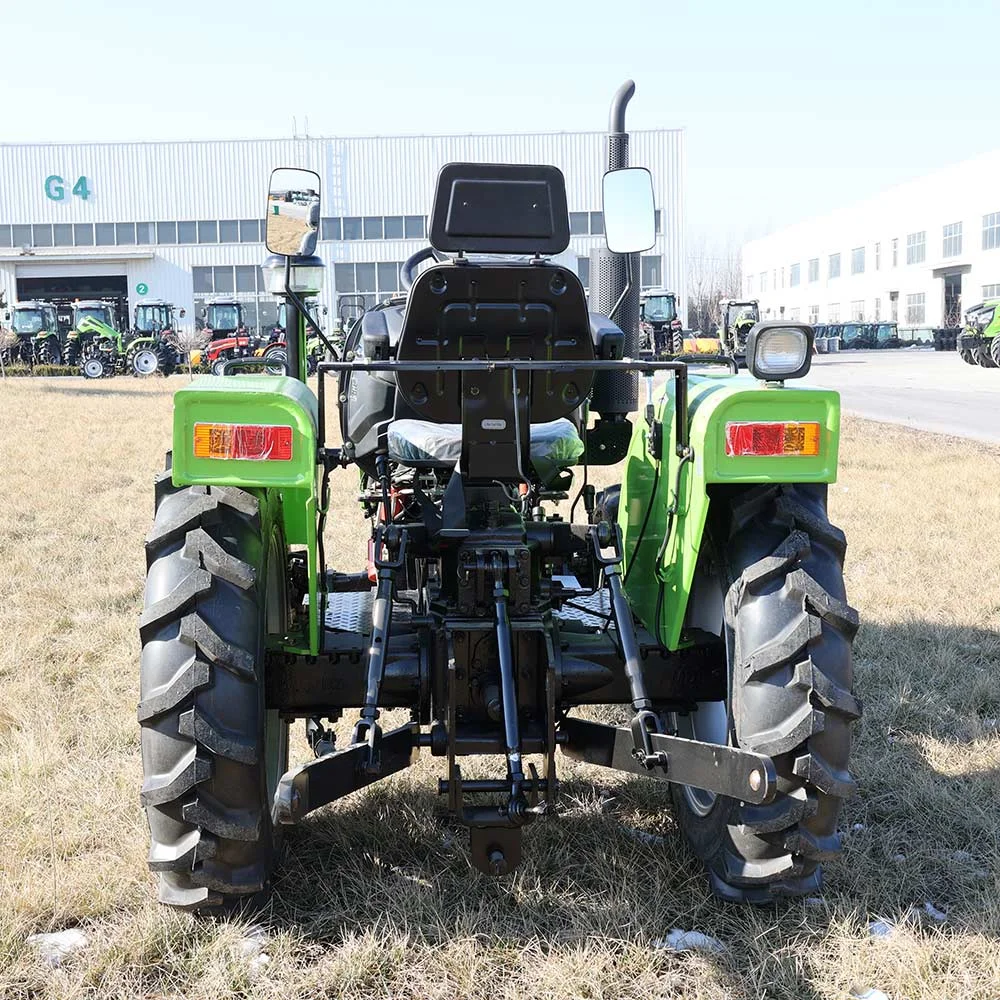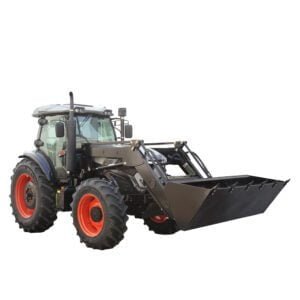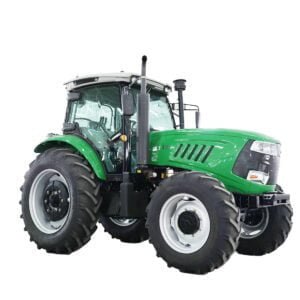Email: [email protected] Whatsapp: 8618266768780
How to Choose the Right Agriculture Machine Tractor
Welcome to My Blog!
Before we dive into the content, I’d love for you to join me on my social media platforms where I share more insights, engage with the community, and post updates. Here’s how you can connect with me:
Facebook: https://www.facebook.com/profile.php?id=100072217509763
LinkedIn: https://www.linkedin.com/company/74949059/admin/dashboard/
YouTube:https://www.youtube.com/@tractormanufacturer-lc5qz
TikTok: https://www.tiktok.com/@tractormanufacturer
Now, let’s get started on our journey together. I hope you find the content here insightful, engaging, and valuable.
Introduction

Agriculture is the backbone of the global economy, and the heart of agricultural productivity lies in the machinery that supports it. Among the many agriculture machine tractors available, choosing the right one for your specific needs is crucial. Whether you’re a small-scale farmer or manage a large-scale operation, the tractor you select can significantly impact your efficiency, productivity, and bottom line. This guide will walk you through the key factors to consider when choosing an agriculture machine tractor, ensuring you make the best investment for your land.
Understanding Your Needs: The First Step in Tractor Selection
Before you start browsing through catalogs or visiting dealerships, it’s essential to have a clear understanding of what you need your tractor to do. Consider the following:
- Type of Farming: Different tractors are better suited for different types of farming. For example, if you’re involved in row crop farming, you’ll need a tractor that can handle the demands of planting and harvesting in straight rows .
- Terrain: The terrain of your farm will also play a significant role in your decision. Hilly terrain may require a different type of tractor than flat land .
- Soil Conditions: The type of soil you have can affect the traction and stability of your tractor. Some tractors are better equipped to handle wet or loose soil .
Power and Performance: Horsepower and Engine Type
The power of your tractor is determined by its horsepower (hp) and the type of engine it uses. Here’s what you need to know:
- Horsepower: The amount of hp you need depends on the size of your operation and the types of tasks you’ll be performing. Larger hp tractors are better suited for heavy-duty tasks like plowing and harvesting .
- Engine Type: Modern tractors offer a variety of engine types, including diesel, gasoline, and even electric. Diesel engines are popular for their reliability and power, while electric engines are growing in popularity for their environmental benefits .
Size and Maneuverability: Balancing Power and Agility
The size of your tractor is just as important as its power. Here are some points to consider:
- Compact vs. Large: Compact tractors are ideal for small to medium-sized farms or for tasks that require maneuverability in tight spaces. Large tractors are better suited for larger operations with more open spaces .
- Weight: The weight of your tractor can affect its ability to perform in different soil conditions. Heavier tractors may be more stable but can also compact the soil more .
Transmission and Controls: Ease of Use and Efficiency
The transmission and control systems of your tractor can greatly affect your overall experience and efficiency on the farm.
- Manual vs. Automatic: Manual transmissions offer more control for experienced operators, while automatic transmissions can make operation easier, especially for less experienced drivers .
- Hydrostatic Transmission (HST): HST systems offer smooth and efficient operation, making them ideal for tasks that require constant stopping and starting .
Attachments and Implements: Customizing Your Tractor to Your Needs
One of the great advantages of tractors is their versatility. With the right attachments and implements, you can customize your tractor to perform a wide range of tasks.
- Plows and Cultivators: For tilling and preparing soil for planting.
- Loaders and Backhoes: For moving and digging large amounts of material.
- Balers and Mowers: For managing crops and maintaining fields .
A Comparative Analysis of Agriculture Machine Tractors
| Feature | Compact Tractor | Large Tractor | Specialty Tractor |
|---|---|---|---|
| Horsepower | Low to Medium | High | Specific to Task |
| Maneuverability | High | Low | Medium |
| Terrain Adaptability | Medium | Low | High |
| Attachment Compatibility | High | High | Medium |
| Fuel Efficiency | Medium | Low | High |
Cost Considerations: Balancing Budget and Performance

When choosing an agriculture machine tractor, cost is a significant factor. You’ll need to consider:
- Initial Purchase Price: This can vary widely depending on the make, model, and features of the tractor .
- Operating Costs: This includes fuel, maintenance, and repair costs. Some tractors may be more fuel-efficient or require less maintenance than others .
- Resale Value: Consider how much the tractor will be worth when you’re ready to sell or trade it in. Some brands and models hold their value better than others .
Conclusion
Choosing the right agriculture machine tractor is a critical decision that can impact your farm’s productivity and profitability for years to come. By considering the factors discussed in this guide, you can make an informed decision that suits your specific needs and helps you get the most out of your agricultural operations.
FAQ
What are the key factors to consider when selecting an agriculture machine tractor for my farm?
Key factors include the type of farming you do, the terrain and soil conditions of your land, the size of your operation, the power requirements for the tasks you’ll be performing, and your budget. It’s also important to consider the tractor’s fuel efficiency, maintenance costs, and the availability of attachments and implements that fit your specific needs.
How can I determine if an agriculture machine tractor has sufficient horsepower for my farming operations?
The horsepower needed depends on the specific tasks you’ll be performing with the tractor. As a general rule, it’s advisable to choose a tractor with more horsepower than you initially think you’ll need to handle heavy loads and tough conditions. You can also consult with the tractor manufacturer or a local dealer who can help you determine the appropriate horsepower based on your specific requirements.
What are the benefits of using an agriculture machine tractor with a hydrostatic transmission system?
An agriculture machine tractor with a hydrostatic transmission (HST) system offers smooth and efficient operation, which is particularly beneficial for tasks that require frequent stopping and starting. HST systems also allow for easier maneuvering and precise control, which can be advantageous in tasks that demand accuracy, such as planting or harvesting in rows.
How do I maintain an agriculture machine tractor to ensure its longevity and optimal performance?
Regular maintenance is crucial for the longevity and optimal performance of your agriculture machine tractor. This includes regular checks and changes of engine oil, hydraulic oil, and filters. It’s also important to inspect and maintain the tractor’s tires, brakes, and electrical systems. Following the manufacturer’s recommended maintenance schedule and using high-quality parts can help prevent costly repairs and downtime.
What are some common attachments that can be used with an agriculture machine tractor to enhance its versatility?
Agriculture machine tractors are highly versatile due to their compatibility with a wide range of attachments. Common attachments include plows for soil preparation, cultivators for weed control, loaders for moving materials, backhoes for digging, balers for crop management, and mowers for maintaining fields. The specific attachments you’ll need will depend on the tasks you plan to perform with your tractor. Investing in a variety of attachments can help you get the most out of your tractor and adapt to different farming tasks throughout the year.
About Us
Shandong Qilu Industrial Co., Ltd. is a professional manufacturer and exporter integrating the development and production of excavators, loaders and tractors. We provide the best service, absolutely.
Recent Posts
Video demo
-1.png)
Contact Us Today!
Any question, quote or inquiry? Click the button to send message.
Qilu Industrial will always here to help.









